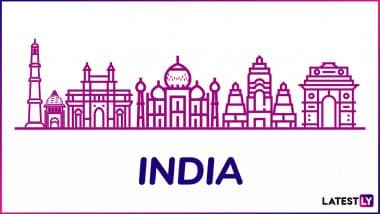Mumbai, May 21 (PTI) The Maharashtra government today said it has detected and replaced 99 lakh "undeserving" beneficiaries from its public distribution system with the help of Aadhar-enabled Public Distribution System (AePDS) in just one month.
"This is just the beginning of cleaning up the system. In coming months, more bogus and undeserving people will be replaced with the genuine ones," PDS Minister Girish Bapat told reporters.
He said the government detected "hundreds of thousands" of such cases during linking of ration cards with Aadhaar numbers.
"These names were either duplicate or bogus...many of them (beneficiaries) had passed away long before but food grains were drawn in their name. Within one month's period from the implementation of AePDS, we could remove 99 lakh such names from the system. Now, we can replace it with genuine 99 lakh people who deserve to be covered under Food Security Act," the minister said.
Aadhaar enabled Public Distribution System leverages the Aadhaar platform in delivering the food commodities to the eligible beneficiaries.
A PDS official said, "The PDS system costs around Rs 14,000 crore yearly because foodgrains are sold at very low rates. With this correction in the data, the state can save Rs 4,200 crore annually".
He said removing the bogus names did not necessarily mean that they will be replaced by equal number of needy persons.
"The actual number of needy persons could be lesser and thus it will save a lot of funds, which were unduly spent so far," he said.
Meanwhile, Bapat said the state administration currently uses real-time information of every shop in the state, the amount of sale every shop reported, and distribution of foodgrain to keep a check on the system.
"The AePDS helped the state to filter the system as the Centre has fixed state's quota to seven crore people to be covered under the Food Security Act 2013. The coming months will filter the ration card database further," the minister said.
When asked about AePDS implementation and its benefits, Bapat said, "In Pune city alone, of the total allocation, foodgrain distribution was 88% till last couple of months. The AePDS filtered the database and removed all the bogus and duplicate names resulting in foodgrain distribution falling to merely 40%. This is an example of how a system with good-intention was misused by some people."
Citing the example of Nagpur, the official said the number of PDS beneficiaries stood at 2,98,000 so far, which was reduced to 1,98,000 with the AePDS filter.
"When we called for remaining genuine beneficiaries to join PDS, only 40,000 got selected. It means, remaining 60,000 were bogus and there is no one to replace them. It will now reduce Nagpur's foodgrain requirement as per Food Security Act," the official said.
As per the Food Security Act 2013, a person with an annual income of Rs 44,000 in rural areas is eligible as a beneficiary under the system.
"The norm of annual income in urban areas is Rs 59,000. All the beneficiaries have self-declared their financial status and no state official has verified it," according to the minister.
(This is an unedited and auto-generated story from Syndicated News feed, LatestLY Staff may not have modified or edited the content body)













 Quickly
Quickly
















